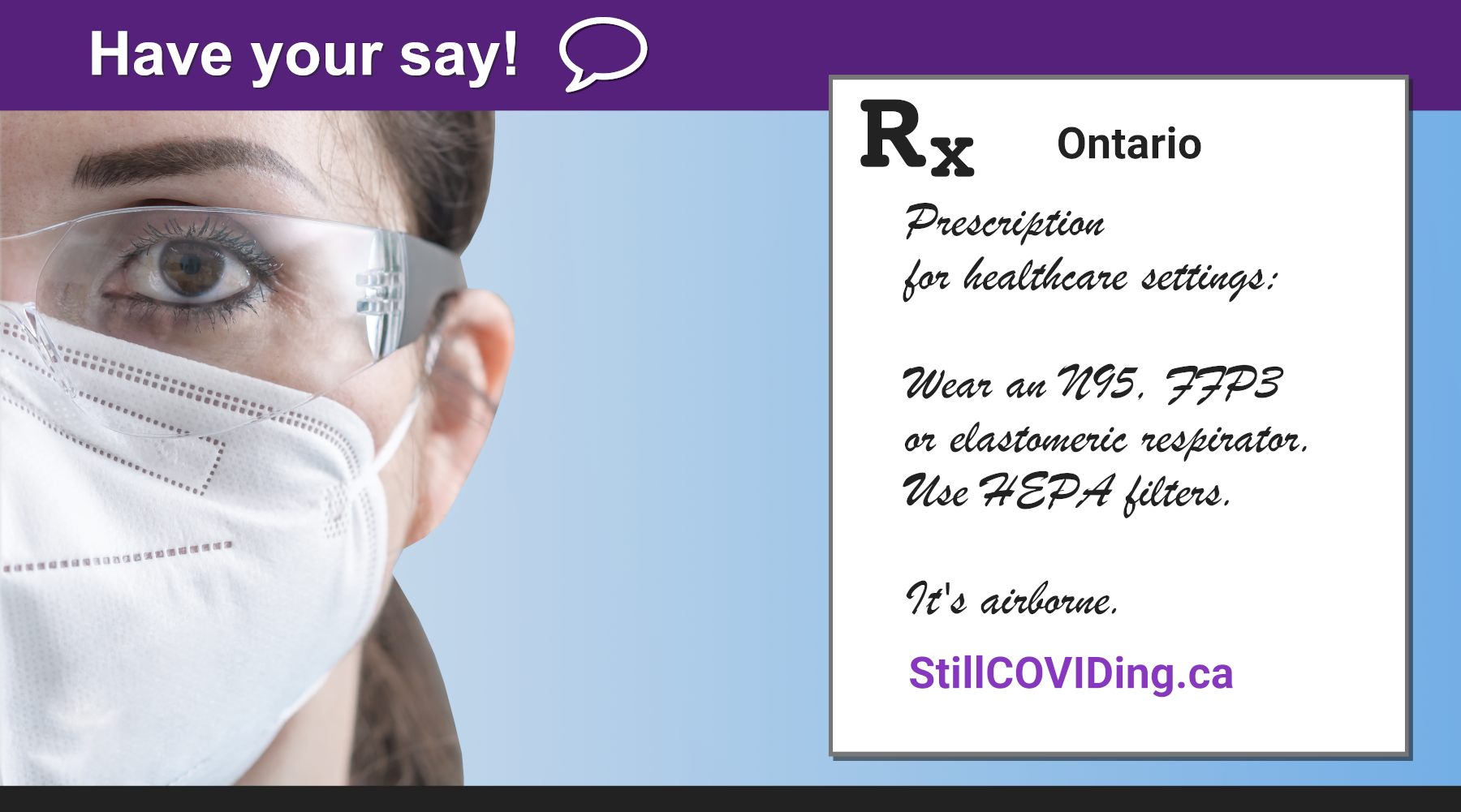📣 The College of Physicians and Surgeons of Ontario has initiated a consultation on infection prevention and control (IPAC). Do you want healthcare workers to wear N95 respirators? Would it be safer with HEPA filters in healthcare settings? Let them know!
Have your say
⏰ Provide your feedback by Monday, May 6, 2024, at 11:59 pm ET.
Some points to make:
-
We need mandatory, universal masking with N95 respirators in healthcare settings to prevent nosocomial infections. In the draft document, Policy 2 v refers to the wearing of medical masks “when required.” Medical masks do not provide adequate protection.
It is absolutely essential for healthcare workers to follow airborne precautions, by wearing respirators (e.g. N95, N99, FFP3 or elastomeric respirators). The policy must mention respirators, rather than obsolete medical masks. With mandatory, universal masking with respirators, healthcare workers and patients can avoid contracting COVID-19, influenza, measles, tuberculosis, and other diseases in healthcare settings.
-
Thanks to laissez-faire policies, there is a very high prevalence of SARS-CoV-2, and this is an issue year round, not just during the so-called “respiratory season.” We need mandatory, universal masking with respirators in healthcare settings to stop nosocomial infections. Nosocomial COVID infections can lead to COVID-induced health issues such as long COVID, cognitive issues, strokes, heart attacks and heart failure.
-
All clinics should use HEPA filters to clean the air. HEPA filters are common in the offices of dentists. They should be used in clinics to clean the air, and reduce the risks of contracting COVID-19.
-
Virtual appointments should be available. For many appointments, it is really not necessary to go to a clinic. For example: a routine renewal of a prescription.
-
Doctors should take into account the preferences of patients. If a patient asks you to wear a mask, please wear an N95, FFP3 or elastomeric respirator.

